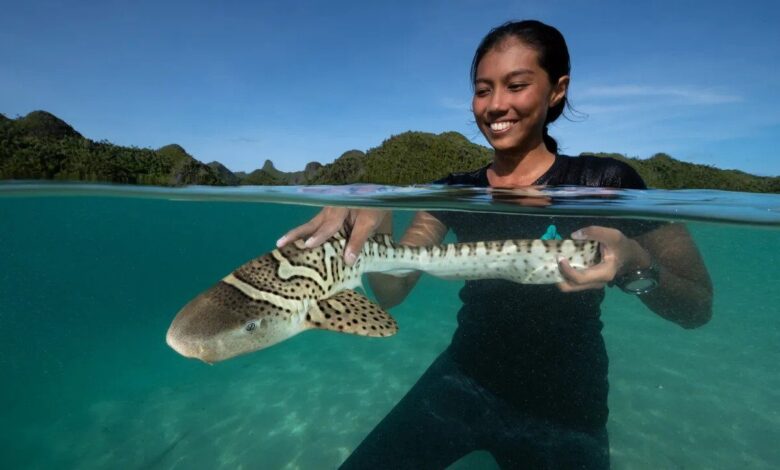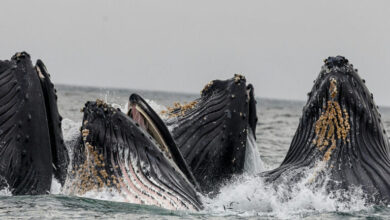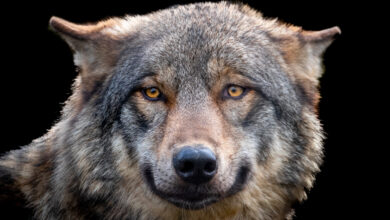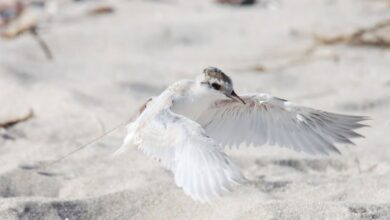
Scientist Nesha Ichida releases the second zebra shark of the day, a young female named Kathlyn, in Indonesia’s Wayag Islands. Ichida is part of a new group, ReShark, led by 44 aquariums from around the world, that aims to rebuild endangered shark populations by reintroducing sharks raised in captivity to their native waters. (Ichida had released Charlie, Kathlyn’s older sibling, and the very first shark set free through this program, 20 minutes earlier. Photo Credit: David Doubilet and Jennifer Hayes/National Geographic
Animals IndonesiaFirst Mini-Batch of Zebra Shark Babies Released into the Wild!
Three zebra shark pups were released in the protected waters of Raja Ampat, Indonesia, marking the culmination of rewilding efforts to restore the endangered species’ population, with photos and footage to mark the occasion.
“[The international collective] ReShark is about action not words on paper,” explain National Geographic underwater photographers David Doubilet and Jennifer Hayes. “ReShark is putting endangered sharks back into the sea, where they belong, into places they will now be protected. And protection is key.”
Some 70 conservation organizations, aquariums, government agencies, and other institutions are part of ReShark whose goal is to restore populations of threatened sharks and rays. Their StAR project is dedicated solely to the restoration of zebra sharks’ populations in the waters of the Raja Ampat archipelago in West Papua. The zebra shark pups – Charlie, Kathlyn, and Audrey – are the three first to be released, and the organization plans on releasing some 500 more in the coming years as part of an ambitious reintroduction plan. Classified as an endangered species on the International Union for Conservation of Nature Red List, zebra sharks thrive in the tropical Indo-Pacific and are at risk outside of Australian waters. As Raja Ampat is home to some of the world’s most well-enforced marine protected areas, zebra sharks’ populations should be able to bounce back. Therefore, as predators, zebra sharks should regain their place in the food web, balancing and improving the health of Raja Ampat’s marine ecosystems. “We hope to submerge into Wayag lagoon in the future and meet Charlie, Kathlyn, or Audrey again – or better yet, their offspring.”



